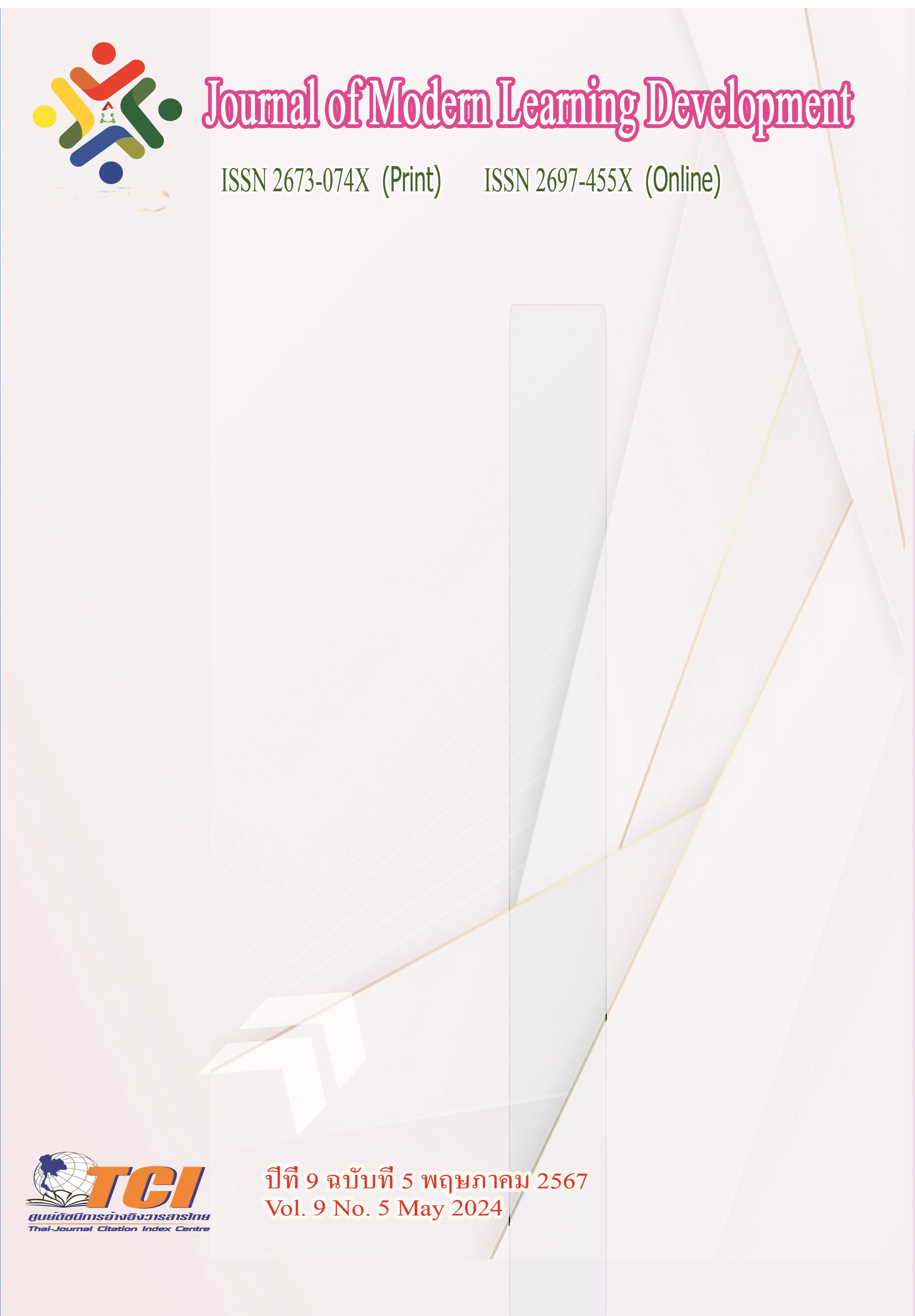The Acquisition of English Irregular Past Tense Morphology by L1 Chinese Learners
Main Article Content
Abstract
The objectives of this research were: (1) To explore the acquisition of English irregular past tense morphology by L1 Chinese learners of different English proficiency levels; (2) To investigate interlingual and intralingual errors with English irregular past tense morphology by L1 Chinese learners; (3) To identify possible factors that cause problems in the production of English irregular past tense morphology by L1 Chinese learners. The participants consisted of 60 L1 Mandarin-speaking learners of English divided into two groups according to their English proficiency levels, i.e., the intermediate and the advanced levels. The methodology included a Fill-in-the-Blank Test, a Grammaticality Judgment Task, and an interview. The data were analyzed and categorized based on the Error Analysis Theory.
The results showed that correct English irregular past tense verb use in the intermediate group was therefore lower than that in the advanced group in both tests (p<.05). Language proficiency was found to have an impact on the acquisition of English irregular past tense by L1 Chinese learners. Several forms of errors in English irregular past tense were demonstrated and attributed to both interlingual and intralingual interferences. That is, with respect to interlingual errors, non-existence of the past tense morphology in Chinese possibly caused difficulties for L1 Chinese learners in both perceiving and producing English irregular past tense morphemes. In terms of intralingual errors, overgeneralization was found to be a contributing factor. Besides, false concepts hypothesized, i.e., learners' faulty knowledge of the target language due to influences from teaching and learning possibly led to the problems. In China, the focus on teaching English irregular past tense verbs through memorization so Chinese learners learn those verbs as lexical words.
Article Details
References
Altakhaineh, A. R., Alhloul, R., & Zibin, A. (2022). Foreign language processing of English regular and irregular past tense verbs by Arabic-speaking EFL children. Psycholinguistics. 32 (2), 6-28.
Arifin, M. A., Jihad, S., Mulyani, S., Ardin, H., & Nurwahida, N. (2019). The Acquisition Order of Past Tenses: An Interlanguage Analysis. IDEAS: Journal on English Language Teaching and Learning, Linguistics and Literature. 7 (2), 147-153.
Hawkins, R., & Liszka, S. (2003). Locating the source of defective past tense marking in advanced L2 English speakers. Language Acquisition and Language Disorders. 30, 21-44.
Hsieh, F. T. (2009). The acquisition of English agreement/tense morphology and copula be by L1-Chinese-speaking learners. In Papers from the Lancaster University Postgraduate Conference in Linguistics & Language Teaching. 7 (3), 45-59.
Khumdee, M., & Pongpairoj, N. (2014). Variable Production of English Past Tense Marking by L1 Thai Learners: An Application of the Failed Functional Features Hypothesis (FFFH). Thoughts. (1), 126-144.
Liping, Y. (2022). Developing Task-Based Instruction to Make Deaf English a Thing of the Past. Study Journal. 3(9), 187-188.
Nicoladis, E., Yang, Y., & Jiang, Z. (2020). Why jumped is so difficult: tense/aspect marking in Mandarin–English bilingual children. Journal of Child Language. 47 (5), 1073-1083.
Prapobaratanakul, C., & Pongpairoj, N. (2016). Variable Production of English Past Tense Morphology: A Case Study of a Thai-Speaking Learner of English. PASAA: Journal of Language Teaching and Learning in Thailand. 51, 71-96.
Rajab, B. (2021). Arabic Learners’ Production of Regular English Past Tense Verbs. International Journal of Linguistics. 13 (6), 76-94.
Richards, J. C. (1971). A non-contrastive approach to Error Analysis. English Language Teaching Journal. 25, 204-219.
Richards, J. C. (1974). Error Analysis: Perspectives on Second Language Acquisition. London:
Sharmini, S., Tee, K., Singaram, N., & Jusoff, K. (2009). The Second Language Acquisition of Past Tense Marker in English by L1 Speakers of Chinese. Canadian Social Science. 5 (3), 133-140.
Sriphrom, S., & Ratitamkul, T. (2014). Lexical Aspect and the Use of Simple Past Tense by Thai Learners of English. Manusya: Journal of Humanities. 17 (1), 64-77.


